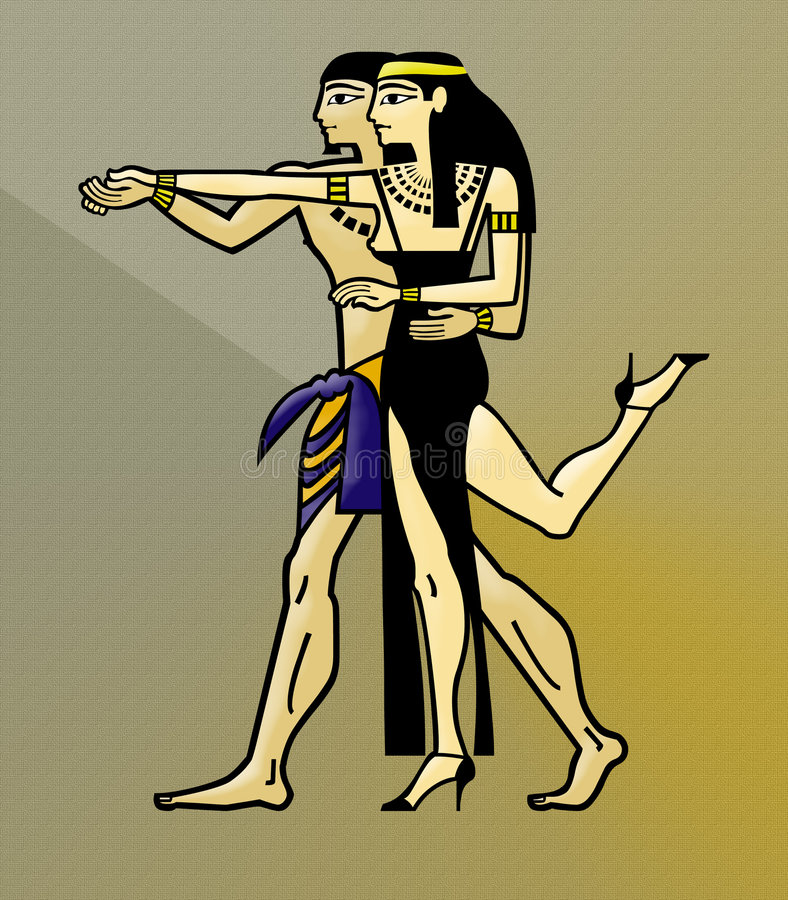
Diplomacy was a major tool for the rulers of ancient Egypt, who excelled in it after the foundation of the Egyptian state in the Nile Valley in the third millennium BCE.
Politicians used the power of words to ensure a balanced drive for a successful dialogue that would cross cultural borders, whether to the east, the west, or the south. Across the Nile Valley, a robust network of intellectuals constituted a powerful elite that inspired the entire country and was able to guarantee social stability and exercise better political practice.
At the end of the Fifth Dynasty, in other words 2500 BCE, a man called Ptah Hotep lived an extraordinary life along the banks of the Nile in Memphis with his beautiful wife Khâ-m-r-nebty, his son Akhet-hotep and grandson Ptah-hotep Tjefi.
Ptah Hotep was a renowned personality and a notable figure in the royal court during the reign of king Djedkare Isesi. He was a great vizier, one of the most important politicians of the court, and an outstanding city administrator capable of helping the king manage every aspect of governance including finance, planning, and agriculture.
Djedkare Isesi was known for his strength and effectiveness, among other things for making major reforms to the state administration, the first undertaken since the inception of the system of titles and ranks. But he was also a firm believer in the importance of innovation. As a result, he made major efforts to institute transboundary communication to strategic regions such as the Land of Punt, the Levantine coast, Sinai, and Nubia.
In a context where innovation and new ventures were taking place in Egypt, Ptah Hotep was conscious of the value of knowledge and culture. He wrote in a philosophical spirit on topics that included wisdom literature deriving from the cult of the goddess Maat to table manners and proper conduct for success in court circles, along with hints to men on preserving their wives’ femininity and how to live moral lives.
These topics, presented in the form of advice from a father to his son, are considered, based on new Egyptological research, as the fundamentals of etiquette and social protocol – in other words the cultivation of self-control and the avoidance of argument.
The oldest surviving copy of what was later called The Maxims of Ptah Hotep dates from the Middle Kingdom and was translated in 1906 by the philologist Battiscombe Gunn, who published the Maxims under the title of “The Wisdom of the East”. The oldest wisdom literature of the ancient world, their purpose was the transmission of life experience and the teaching of skills and knowledge from one generation to the next in order to inspire the norms of personal behaviour necessary for a polite and disciplined society.
Very early on, Egypt thus began to shed light on social realities through literature and texts dealing with philosophy and spiritualism. Knowledge of those realities, referring to people’s lives, objects they were using, and events they were celebrating, has come down to us through sources like the daily scenes depicted on the walls of ancient tombs and temples and from texts written on ostraca and papyri.
As luck would have it, in 1856, some years after the deciphering of ancient Egyptian hieroglyphs by French scholar Jean-François Champollion, his colleague, Émile Prisse d’Avennes, acquired a literary manuscript that is now in the French national library and is called “The Papyrus of Prisse” as tradition obliged it to be called by the name of the man who originally acquired it at the time. This papyrus contains the only complete surviving copy of the advice of Ptah Hotep.
It is known by researchers as a “book of wisdom” and is considered to be the oldest reference in the world for what is now called savoir vivre, or polite conduct, in French. Even though this text has not been familiar to the general public until recently, it has been “branded” as a form of spirituality and used for other purposes.
More than 30 per cent of the advice in Ptah Hotep’s Maxims focuses on the natural and spontaneous exchange of words between people. According to Ptah Hotep, such exchanges build bridges between one person and another and create a “soft” way to pass on ideas and opinions while at the same time inculcating correct behaviour and proper forms of address.
Among these pieces of advice that were written in Egypt in the third millennium BCE, one can find some that are closely related to the fundamental lessons that were given to young diplomats prior to their duties abroad. “It is [only] the skilled who should speak in council,” Ptah Hotep says, adding that you should “ensure that your talk fits your listeners’ knowledge or needs.”
“Don’t start an oppositional event with an impolite act. Be friendly at first,” he says. “Don’t speak to him [an interlocutor] until he summons you to do so.”
Speaking in public was also tied up by the grand sage Ptah Hotep with politeness and humanity, and some of his Maxims would not look out of place in a course on coaching or self-presentation within the science of diplomacy and foreign relations.
“Conceal your heart and control your mouth, and then you will be known [as good] among officials,” he says. He warns against impoliteness. “Do not be insulting through poor non-verbal behaviour and do not sit or stand [unless it] befits one’s rank or avert one’s face when answering an angry person.” Ptah Hotep also insisted on the veracity of intuitions and the importance of first impressions by saying “follow your heart as long as you live.”
Another important feature of interaction concerns “hearing” and “listening” as major tasks in a peaceable speech community. He told his readers to “listen calmly to the speech of one who pleads… Don’t stop him from purging his body of that which he has planned to tell… A man in distress wants to pour out his heart… And a good hearing soothes the heart.”
In the same context, he links happiness and satisfaction with listening and makes clear the difference between “hearing” and “listening.” He manages to link listening as a form of personal behaviour to general sociability, seeing it as an act to make others feel good.
Using the right words can encourage and build mutually respectful relationships. The power of the word is linked with humility, for Ptah Hotep, who says that “a perfect word is hidden more deeply than precious stones. It is to be found near the servants working at the millstone.”
In another part of his long and sensitive text, he says “only speak when you have something worth saying.” Other advice concerns the need to keep a low profile instead of being loud. “Do not inflate your mouth beside your neighbours; to inspire awe by being silent is great… If you are to be a leader, be patient in your hearing when the petitioner speaks.”
Having said the above, allow me to say that even if politics and culture are sometimes seen as autonomous social realms, the interdisciplinary dialogue between them that has emerged recently has proved that there is still room to improve and that we cannot consider either as a standalone subject with its own methodological rules and empirical character.
***About!
Ahram – The writer is a MP and member of the House of Representatives Foreign Relations Committee and a researcher at the French National Research Centre CNRS-Sorbonne University.





